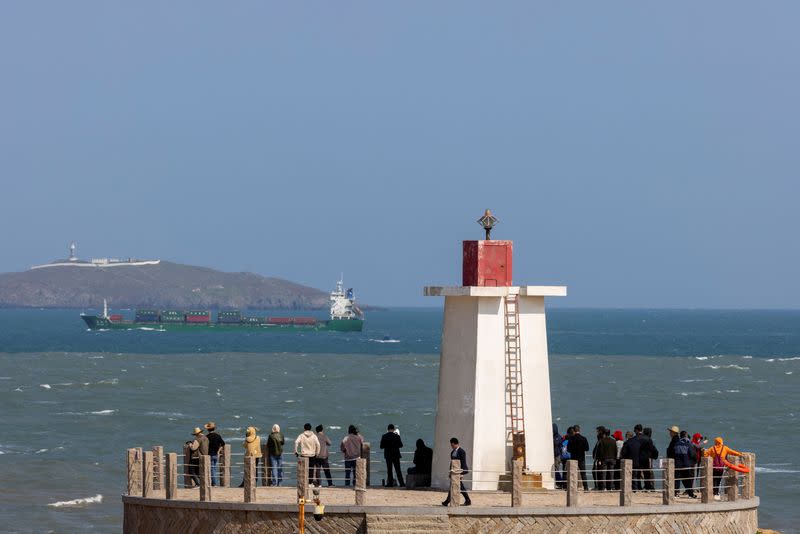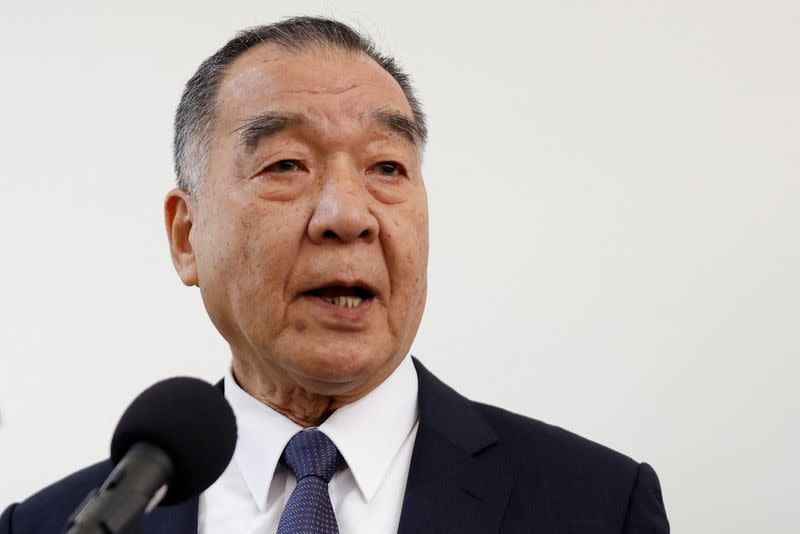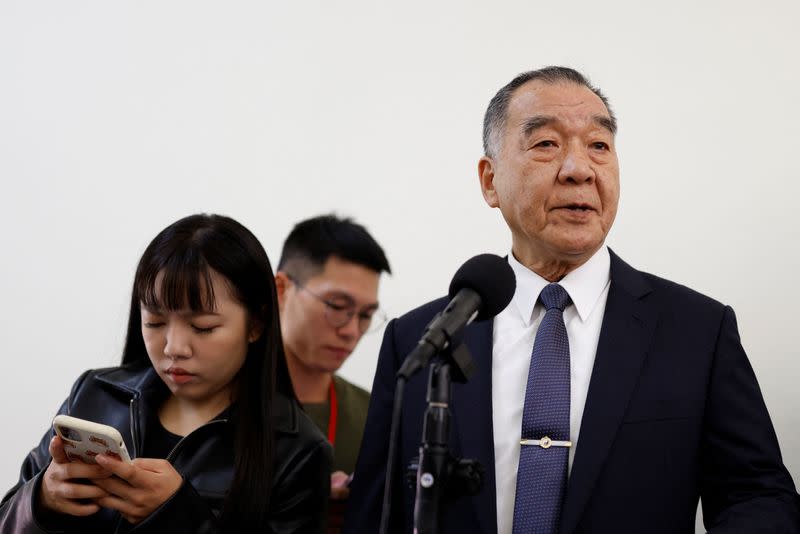Chinese fighters, balloon cross Taiwan Strait a month before election
By Ben Blanchard
TAIPEI (Reuters) -Taiwan said on Friday that 12 Chinese fighter jets and a suspected weather balloon had crossed the Taiwan Strait's sensitive median line, in a ratcheting up of tensions about a month before the island's presidential election.
Democratically governed Taiwan, which China claims as its own territory, has complained for the past four years of regular Chinese military patrols and drills near the island.
Taiwan holds presidential and parliamentary polls on Jan. 13 and campaigning has kicked into high gear with how the next government handles relations with China a major point of contention.
Taiwan's defence ministry, offering details of Chinese missions on Thursday night, said 12 fighter jets had crossed the median line, that once served as an unofficial barrier between the two sides but which Chinese planes now regularly fly over.
In an unusual addition to its statement, the ministry said that around midday on Thursday it had also detected a Chinese balloon 101 nautical miles (187 km) southwest of the northern Taiwanese city of Keelung, which travelled eastward for about an hour, crossing the strait before disappearing.
Taiwan Defence Minister Chiu Kuo-cheng told reporters at parliament that their "initial understanding" was it was probably a weather balloon, but felt the ministry had an obligation to report this to be public.
"Otherwise, if after other units or other countries have reported it, everyone will wonder why (we) did not report it. The defence ministry requires all our subordinate units to have a grasp of the enemy situation," he added.
China's defence ministry did not respond to a request for comment.
The potential for China to use of balloons for spying became a global issue in February when the United States shot down what it said was a Chinese surveillance balloon but which China said was a civilian craft that accidentally drifted astray.
Taiwan is on high alert for Chinese activities, both military and political, ahead of its election, especially what Taipei views as Beijing's efforts to interfere in the ballot to get electors to vote for candidates China may prefer.
Vice President Lai Ching-te and running mate Hsiao Bi-khim from the ruling Democratic Progressive Party are leading in the polls. China views then as separatists and has rebuffed Lai's offers of talks.
Taiwan Foreign Minister Joseph Wu said on Friday that China's Taiwan Affairs Office was being "blatant" in its interference. It has called Lai and Hsiao an "independence double act".
"They are commenting in very negative language about Vice President Lai or the vice presidential candidate Bi-khim Hsiao. Those kinds of statements have already told the Taiwanese people that they want to interfere in Taiwan's election and they want to shape the results of the election," Wu said.
"They are doing all sorts of things to interfere in our election and we can expect more leading up to our polling date.
China's Taiwan Affairs Office did not respond to a request for comment on Friday about Taiwan's interference accusations. Previously it has said only that it respects Taiwan's "social systems".
It has, however, framed the election as a vote between war and peace, and urged Taiwan's people to carefully consider their choices.
(Reporting by Ben Blanchard; Additional reporting by Faith Hung and Sarah Wu; Editing by Christopher Cushing and William Mallard)



